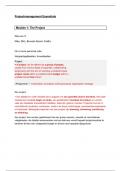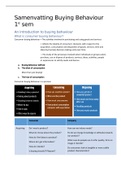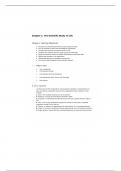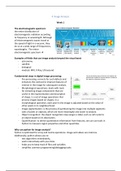The Law of Agency
An agent is someone who has the authority to make contracts on behalf of another, the
principal. An example of an agent would be board of directors or shop assistants. An agent
has the power to buy and sell property, enter into contracts, hire employees. In short they
do whatever is necessary to fulfill the terms of the agency contract. An agent owes various
duties to the principal whether under the contract or the common law. The duties of the
agent is to obey the instructions of the principal, exercise care and skill when performing his
duties, to avoid conflict of interest and duty and not to make a secret profit.
The case of Boardman v Phipps (1967) raised the question of whether Boardman and Tom
Phipps breached their duty to avoid a conflict of interest, despite the fact that the company
made a profit and they had obtained (some) consent from the beneficiaries. It was held by
the court that Boardman and Tom Phipps had breached their duties to avoid a conflict of
interest. Boardman and Phipps would have to account for their profits, despite the fact they
had best intentions and made the Lexter & Harris a profit.
An agent has the right to be compensated for his services and to be repaid for expenditures
incurred.
Termination of agency
The principal can revoke power at any moment, but he will be in breach of contract if he
does so during the agency period.
Termination of agency (automatic termination)
Automatic termination will occur due to these reasons:
1) Where the agency contract is frustrated
2) Death of either party or insanity
When the agent or principal dies or becomes insane, the agency is terminated. Since a
person cannot act on behalf of a non-existent person, termination of agency occurs
immediately after the death of either the agent or the principal.
3) Bankruptcy of either party
,When the principal is declared as bankrupt, termination of agency occurs since the insolvent
is disqualified from entering into contract in respect of his property.
Authority of agent
There are many ways in which an agent can acquire his authority.
1. Actual authority
Actual authority gives an agent the power to act on behalf of the principal as this
power expressly or impliedly granted.
a) Express actual authority
Express actual authority is when there is direct communication between the
principal and the agent, where the principal gives the agent the authority to do
something.
b) Implied actual authority
Implied actual authority is the authority that is based on the agent’s rational
understanding of the instructions given by the principal.
In the case of Hely Hutchinson v Brayhead (1968), Lord Denning MR stated that “Implied
authority by the agent by virtue of their usual scope of that office. This means to do
additional tasks not expressly given by the principal but implied in the agent’s course of
work”.
2. Apparent authority
Apparent authority is when the agent has the power to act on behalf of a principal,
even though not expressly or impliedly granted. It arises only if a third party may
reasonably conclude from the principal’s conduct that the principal delegated such
authority to the agent.
3. Agency for ratification
This occurs when the agent acted without authority and consequently the principal
decides to ratify the contract.
After ratification, it is as if the agent had actual authority to do what he did.
,The rules for ratification are:
- The agent must have purported to act as an agent.
In the case of Keighley Maxted v Durant [1901], an agent was authorized by the
principal to buy wheat at a certain price. The agent exceeded his authority and
bought it at a higher price. However, the agent contracted in his own name. It
was held that the principal was not liable for the act of the agent who did not
profess to be an agent when he entered into the contract.
- The principal has full capacity to make the contract which the agent has made.
In the case of Kelner v Baxter [1866], a group of company promoters entered into
a contract, purpotedly on behalf of the company which was not yet registered to
buy wine. When the company was registered, it ratified the contract.
- At the time of ratification the principal knew of all the material facts or intended
to ratify no matter what they were
- A void contract cannot be ratified.
- Ratification must take place within a reasonable time, will not be allowed if
detrimental to third party.
- Ratification will not be allowed if the third party knew the agent’s authority was
limited or that the contract needed to be ratified.
, • Occupational health and safety (oh&s)
o The identification evaluation, and control of hazards associated with
the workenvironment
• Occupational injury
o Any cut, fracture, sprain, or amputation resulting from a workplace accident
• Lost time injury
o An injury serious enough to warrant missing time from wo rk
• Brown lung:
o a disease of the lungs caused by excessive inhalation of dust: the disease
is in the pneumoconiosis family and ofent afflicts textile workers
• Assumption of risk
o The belief that a worker accepted the risks of employment when he or she
accepted ajob
• Accident proneness:
o The notion that some individuals are ineherently more likely than others to be
involved in accidents as a result of inidivudual characteristics
• Due diligence
o An expected standard of conduct that requires employers to take every
reasonable precaution to ensure safety
• Internal responsibility
o The system of shared responsibility for health and safety that is the basis
for mostCanadian OH&S legislation
• The three E’s
o A traditional approach to occupational health and safety that emphasized
engineering, education, and enforcement
Workplace accidents continue to occur with consequences ranging from minor property
damage to death. The number of workplace fatalities in Canada continues ti increase. The
recent rigures suggest that more than 1000 workers each year die as a result of workplace
accidents and that almost 308000 suffer an injury serious enough to warrant missing time from
work which is often called a lost time injury
• Workplace fatalities and injuries are concentrated by industry, with primary
industries (e.g. mining forestry) being the most dangerous.
• More than half of workplace fatalities are attributable to occupational diseases; the
effects ofasbestos account for the most of these deaths
• Workplace hazards range from chemical, biological, and physical agents to
psychosocial disorders.
• The goal of an organizations health and safety program is to reduce occupational
injuries and illnesses
o Health and safety concerns are no longer limited to industrial workers emplyees in
whitecollar environments are worrying more and more about repetitive strain
injury and sick building syndrome
Sources of indoor pollutants
An agent is someone who has the authority to make contracts on behalf of another, the
principal. An example of an agent would be board of directors or shop assistants. An agent
has the power to buy and sell property, enter into contracts, hire employees. In short they
do whatever is necessary to fulfill the terms of the agency contract. An agent owes various
duties to the principal whether under the contract or the common law. The duties of the
agent is to obey the instructions of the principal, exercise care and skill when performing his
duties, to avoid conflict of interest and duty and not to make a secret profit.
The case of Boardman v Phipps (1967) raised the question of whether Boardman and Tom
Phipps breached their duty to avoid a conflict of interest, despite the fact that the company
made a profit and they had obtained (some) consent from the beneficiaries. It was held by
the court that Boardman and Tom Phipps had breached their duties to avoid a conflict of
interest. Boardman and Phipps would have to account for their profits, despite the fact they
had best intentions and made the Lexter & Harris a profit.
An agent has the right to be compensated for his services and to be repaid for expenditures
incurred.
Termination of agency
The principal can revoke power at any moment, but he will be in breach of contract if he
does so during the agency period.
Termination of agency (automatic termination)
Automatic termination will occur due to these reasons:
1) Where the agency contract is frustrated
2) Death of either party or insanity
When the agent or principal dies or becomes insane, the agency is terminated. Since a
person cannot act on behalf of a non-existent person, termination of agency occurs
immediately after the death of either the agent or the principal.
3) Bankruptcy of either party
,When the principal is declared as bankrupt, termination of agency occurs since the insolvent
is disqualified from entering into contract in respect of his property.
Authority of agent
There are many ways in which an agent can acquire his authority.
1. Actual authority
Actual authority gives an agent the power to act on behalf of the principal as this
power expressly or impliedly granted.
a) Express actual authority
Express actual authority is when there is direct communication between the
principal and the agent, where the principal gives the agent the authority to do
something.
b) Implied actual authority
Implied actual authority is the authority that is based on the agent’s rational
understanding of the instructions given by the principal.
In the case of Hely Hutchinson v Brayhead (1968), Lord Denning MR stated that “Implied
authority by the agent by virtue of their usual scope of that office. This means to do
additional tasks not expressly given by the principal but implied in the agent’s course of
work”.
2. Apparent authority
Apparent authority is when the agent has the power to act on behalf of a principal,
even though not expressly or impliedly granted. It arises only if a third party may
reasonably conclude from the principal’s conduct that the principal delegated such
authority to the agent.
3. Agency for ratification
This occurs when the agent acted without authority and consequently the principal
decides to ratify the contract.
After ratification, it is as if the agent had actual authority to do what he did.
,The rules for ratification are:
- The agent must have purported to act as an agent.
In the case of Keighley Maxted v Durant [1901], an agent was authorized by the
principal to buy wheat at a certain price. The agent exceeded his authority and
bought it at a higher price. However, the agent contracted in his own name. It
was held that the principal was not liable for the act of the agent who did not
profess to be an agent when he entered into the contract.
- The principal has full capacity to make the contract which the agent has made.
In the case of Kelner v Baxter [1866], a group of company promoters entered into
a contract, purpotedly on behalf of the company which was not yet registered to
buy wine. When the company was registered, it ratified the contract.
- At the time of ratification the principal knew of all the material facts or intended
to ratify no matter what they were
- A void contract cannot be ratified.
- Ratification must take place within a reasonable time, will not be allowed if
detrimental to third party.
- Ratification will not be allowed if the third party knew the agent’s authority was
limited or that the contract needed to be ratified.
, • Occupational health and safety (oh&s)
o The identification evaluation, and control of hazards associated with
the workenvironment
• Occupational injury
o Any cut, fracture, sprain, or amputation resulting from a workplace accident
• Lost time injury
o An injury serious enough to warrant missing time from wo rk
• Brown lung:
o a disease of the lungs caused by excessive inhalation of dust: the disease
is in the pneumoconiosis family and ofent afflicts textile workers
• Assumption of risk
o The belief that a worker accepted the risks of employment when he or she
accepted ajob
• Accident proneness:
o The notion that some individuals are ineherently more likely than others to be
involved in accidents as a result of inidivudual characteristics
• Due diligence
o An expected standard of conduct that requires employers to take every
reasonable precaution to ensure safety
• Internal responsibility
o The system of shared responsibility for health and safety that is the basis
for mostCanadian OH&S legislation
• The three E’s
o A traditional approach to occupational health and safety that emphasized
engineering, education, and enforcement
Workplace accidents continue to occur with consequences ranging from minor property
damage to death. The number of workplace fatalities in Canada continues ti increase. The
recent rigures suggest that more than 1000 workers each year die as a result of workplace
accidents and that almost 308000 suffer an injury serious enough to warrant missing time from
work which is often called a lost time injury
• Workplace fatalities and injuries are concentrated by industry, with primary
industries (e.g. mining forestry) being the most dangerous.
• More than half of workplace fatalities are attributable to occupational diseases; the
effects ofasbestos account for the most of these deaths
• Workplace hazards range from chemical, biological, and physical agents to
psychosocial disorders.
• The goal of an organizations health and safety program is to reduce occupational
injuries and illnesses
o Health and safety concerns are no longer limited to industrial workers emplyees in
whitecollar environments are worrying more and more about repetitive strain
injury and sick building syndrome
Sources of indoor pollutants










